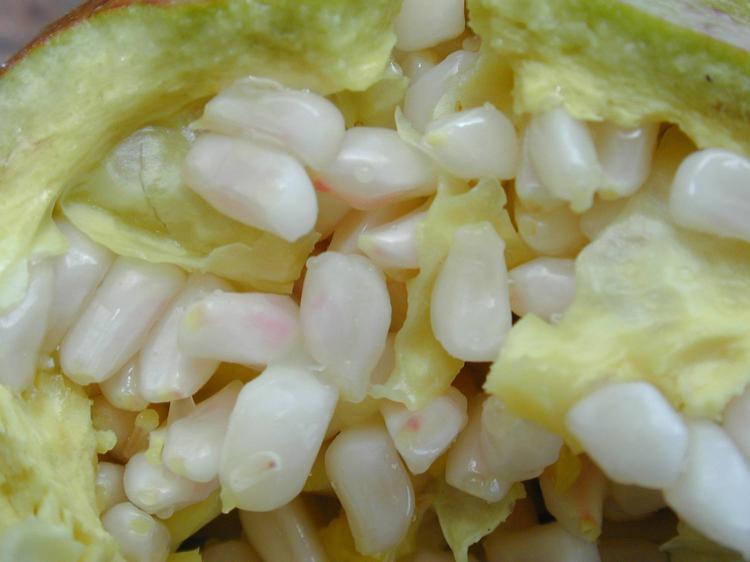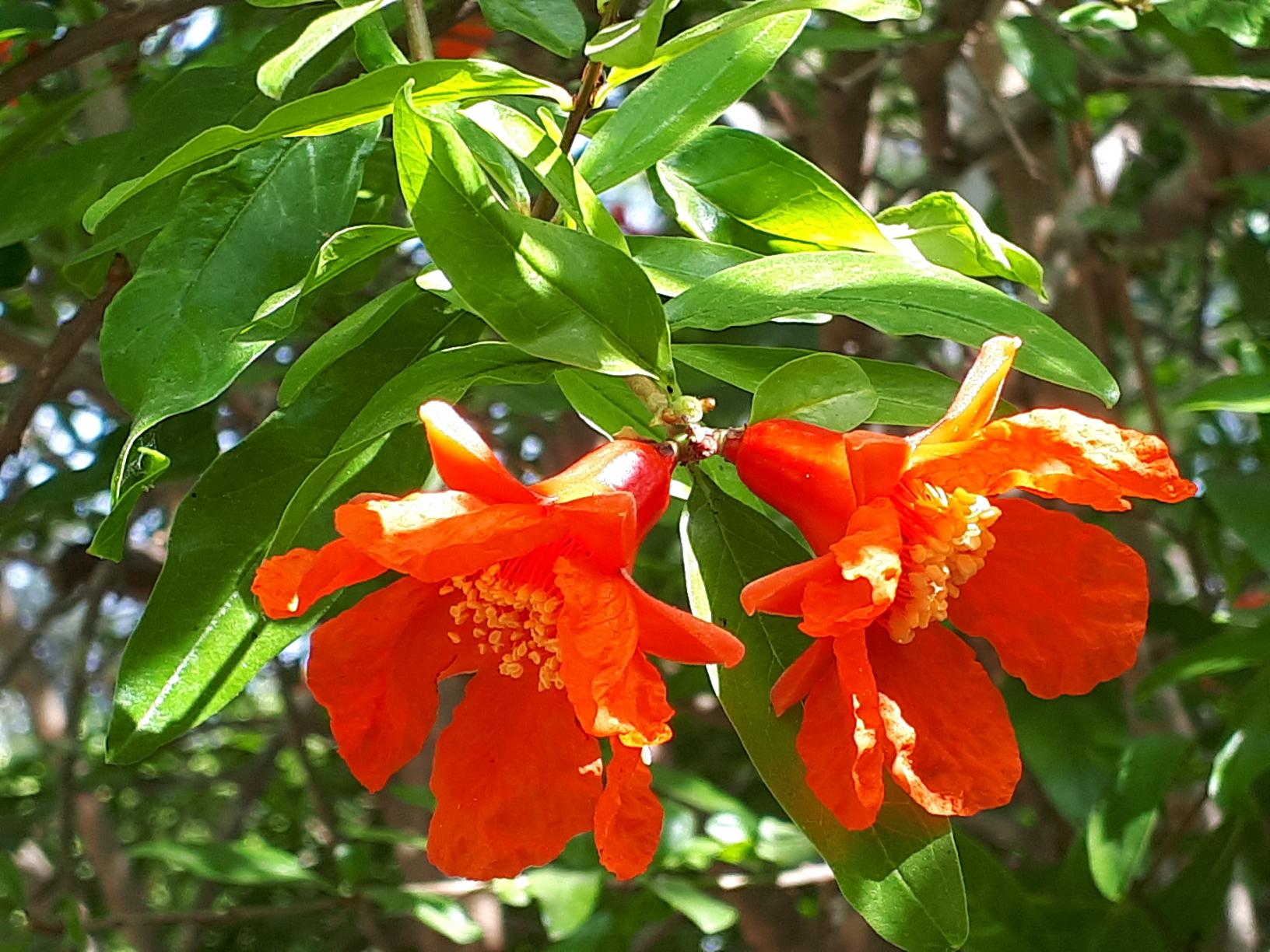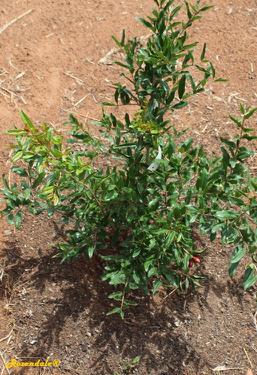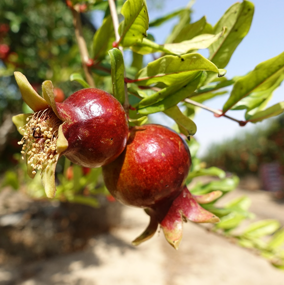Pomegranate - Punica granatum
Description and Uses
Punica granatum (Pomegranate) is a tropical tree from Mesopotamia. It is mainly grown for its fruit crops (medium shelflife), but also Other uses include; alcohol, apiculture, fruit, oil, ornamental and timber can be produced. The crop is harvested by hand picking. It starts flowering after 7 - 8 years. The first yield will be 7 kg/tree but in its top season there will be a yield of 25 kg/tree. The fruit is edible. Medical uses include; Array The fruit contains ascorbic acid (362 mg/l - 372 mg/l). There is pomegrane seed oil extracted by hexane solvent extration from the tree`s seed/nut yielding 4% - 5% oil. The tree`s wood is called pomegranate wood and has a density of 760 - 780 kg/m³. Regarding firewood production the tree`s growing speed is slow, its energetic value is 4400 ckal/kg and the wood`s drying speed is fast; for firewood production it is not ideal. After 50 years the tree can be totally removed as it reached its commercial and ecological goal. Punica granatum has a lifespan of 100 years.
Environmental limitations
The tree is 8 meters tall. It is slow growing and tolerates not less light than full sun. Punica granatum has a deep root-system and forms symbiotic relations it has symbiotic associations with the Glomus intraradices fungus. (endo-mycorrhiza). It is not able to fix nitrogen. The tree`s flower-morphology is hermaphroditic and is pollinated by bees. Punica granatum is evergreen and not allelopathic and has thorns.
Punica granatum thrives in an altitude of 0 to 1500 meters above sea-level (tropical). The minimum temperature is -11°C and optimally between 15 - 40°C. The optimal rainfall is 1150 mm/year. Without irrigation the annual rainfall should be between 400 - 1500 mm (L/m²). The optimal soil-pH is between 6.0 - 7.0 in a soil texture of sand. To salt it is tolerant to wind tolerant and to fire a bit tolerant.
Pests and Diseases
["Anastrepha ludens","Dacus dorsalis","Dacus zonatus","Indarbela quadrinotata","Indarbela tetraonis", "Virachola is and Angular leaf spot,Witches broom diseases.
Seed Propagation
Seeds are orthodox and can be stored for 2 months. There are approximative 75000 seeds/kg. The seeds can be propagated as followed: (1) Store harvested seeds in water or in the fruit at room temperature, (3) Remove the seeds from cold to a permanent warm temperature., (3) Seeds germinate above ground (epigeous)
- Botanical Taxonomy -
|
|
|---|---|
| Clade | Rosids |
| Order | Myrtales |
| Family | Lythraceae |
| Sub-family | Punicoideae |
| Species | Punica granatum |
| Common name | Pomegranate |
| Parameter | Rating |
|---|---|
| Fruit | 5.00 |
| Nut | 2.00 |
| Apiculture | 4.00 |
| Fodder | 2.00 |
| Medicinal | 2.00 |
| Oil | 4.00 |
| Timber | 3.00 |
| Firewood | |
| Grow-speed | slow |
See also |
|
|---|---|
Completed species |
|
|---|---|
|
|
|







